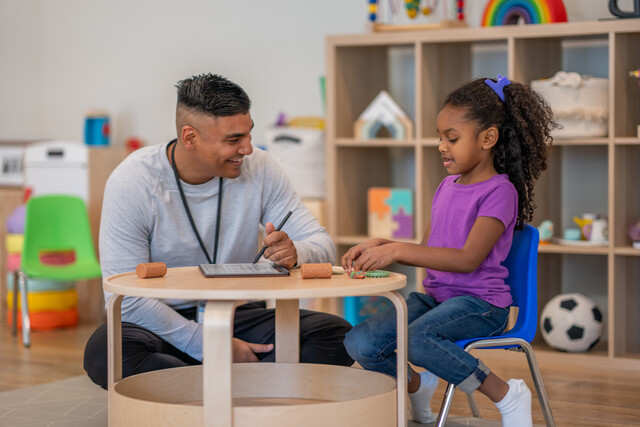Even if you are a young child, you will be invited to parties, and you will invite people to parties. When you are a teen, your social life will really pick up. It is just as important to be a good guest, as it is to be a good host or hostess. Making others glad they invited you will prompt them to invite you again. Being a good host or hostess will prompt people to accept your invitations again.
Extending and receiving invitations
When you are planning a party, it is proper etiquette to send invitations. Schedules are often busy and if you want your friends to be at your party, you have to give them notice. You can purchase or make invitations, or even send "email" invitations for less formal events. But be sure to give your guests at least three weeks notice, especially during busy times, such as the holidays and summer vacation months.
All invitations should include your name, the date, the time, the place, an RSVP date, and any special instructions or requests. RSVP dates are when you need to know if they are coming. This is usually a week to four days prior to the party. Special instructions can include things the invitee needs to bring (a towel, their bathing suit) or requests, such as, "If you don't eat meat, please let us know." If you are not inviting all the people in your classroom, make sure to hand out the invitations outside of school so you do not hurt anyone's feelings.
When you receive an invitation, say thank you. Give the invitation to your parents, or, if you are older, let your parents know, so you can find out if there are any conflicts. Make sure that you or your parents reply by the RSVP date by calling, emailing, or telling them in person. If you must purchase a gift, ask the person if there is something special they want and give yourself or your parent time to purchase it, wrap it, and fill out a card. If you find out last-minute that you cannot attend a party you already said you would go to, try to let the person know, apologize for not being able to make the party, and explain the situation briefly, (I'm not feeling well and I don't want to get everyone sick.")
Greet all of your guests when they arrive. Tell them you are glad they came. Make them comfortable by offering them a drink. If other friends are there already, bring new guests to them so they can chat while you greet new guests. When everyone has arrived that is going to, then join your friends. If they tend to split into small groups, be sure to spend some time with each group. Make sure everyone knows where the bathroom is. Make sure everyone has what they need, and that they have eaten, or know where to get something to drink.
How to be a good guest
Be polite, say please and thank you. Don't break other people's things. Be sociable and don't start arguments or fights with other guests. Clean up after yourself. If you spill something, clean it up, or if your wet towel is on the floor, pick it up. Offer to help your host or hostess with bringing out food or other tasks. Enjoy your friend's party, and remember, he or she probably put some effort into it, so let him or her know that you appreciate that effort and being invited. When you are leaving, be sure to thank you host or hostess and his or her parents if they are there.
Thank you notes
You spend most of your day and week at school, so it is important to know what good school etiquette is. Some schools have their own policy of what is appropriate and not allowed, but beyond that, it is up to you to treat others with respect and kindness.
Socializing at school
Most socializing at school should be done during lunch, recess, or during "non-classroom" times. Most schools will not allow socializing in class. While it is important to pay special attention to your closest friends, you should not ignore certain students or exclude others. Be kind to everyone to the best of your ability. Treat everyone with respect. If there are certain fellow students you don't get along with, keep your distance from them, but do not be rude or nasty to them. Don't get involved in other's fights and disagreements. Try to be as neutral as possible.
Avoiding fights and arguments
To avoid getting involved in arguments or the arguments of others, try not to take school drama too seriously. Kids make friends and change friends, fight and make-up very quickly. A friend can be upset over something one day, and over it the next. So, don't get overly involved in petty fights. When someone is trying to get you "on their side," smile and say, "I like both of you, you guys will work it out." Don't take sides, because when you do, the fighting friends will make up and you will be on the outs! Keep in mind that whatever kids are upset about today, will probably be forgotten for something else a month or even a week from now. So don't get too caught up in school drama.
Balancing school work and socializing
Of the three parts of a child or teen's life -- school, work/volunteering, and socializing -- school work should always be most important. Only if your grades are good should you add work or volunteer responsibilities to your load. Likewise, if your grades are not good, you should not accept invitations until they are. School work is the most important, but it is not all-important; you should make time for fun, friends, sports, and volunteering/working too. Just make sure you are okay balancing these things. If you are getting overwhelmed, let go of something until you are caught up in other areas. As you get older, your parents can't always decide your priorities for you; you will have to do that yourself.
Being a good athlete means not being rude to competitors. You should try to learn from them, rather than fight with them. It is bad etiquette to be rude or obnoxious to those you play against in sports, even during competition. This shows a lack of self control and maybe even a lack of talent. Successful athletes do not treat others disrespectfully before, during, or outside of competition. Those who do are usually on the front page of the newspapers as bad examples of how to behave.
Building confidence
Showing confidence without arrogance or cockiness
Confidence and arrogance, as said, is not the same thing. So, how are they different? Arrogant people are those who act as if they are superior to others. They offend most people with their over-developed sense of importance. Need examples? Here are some examples of confidence versus arrogance:
|
Confidence |
Arrogance |
|
Knowing your true value |
Overestimating your true value |
|
Working hard to know something |
Thinking you know more than you really do |
|
Working hard to be good at something |
Bragging that you are good at everything |
|
Knowing you are good at something |
Thinking you are better than everyone else |
|
Believing in yourself |
Believing others won't manage without you |
|
Thinking you're smart Knowing what is best for you |
Thinking your smarter than everyone else Thinking you know what is best for others |
Conclusion
Conclusion:
You are never too young or too old to learn good etiquette and good manners. Etiquette is more than saying please and thank you -- it is treating others with respect, even those who are rude. It is also self respect and self confidence. The best place to begin learning and practicing good manners is at home. Remember to treat your parents and siblings with respect; siblings may not be as easy, but at least be polite to them in public! Having good manners and proper etiquette does not make you uncool, or old school, it makes you special and great to be around. Good etiquette also does not mean not being yourself. Always be yourself, but do so while respecting the rights of others. Having these skills and this knowledge will help you your entire life. Universities and employers are all seeking that rare quality that fewer people have in our modern world, confidence that comes from respect-of-self and others without arrogance -- etiquette!
For parents and caregivers, children are never too young to start teaching etiquette and good manners to. In fact, if they are reminded every day of the basics of treating others with respect, good manners will become ingrained very early on. Teaching is also learned by watching: Children watch how their parents and caregivers treat others, how they act in public and behave at the dinner table. Many children learn by emulation. So, if you want your children to have good manners, it helps to show them the way!





























